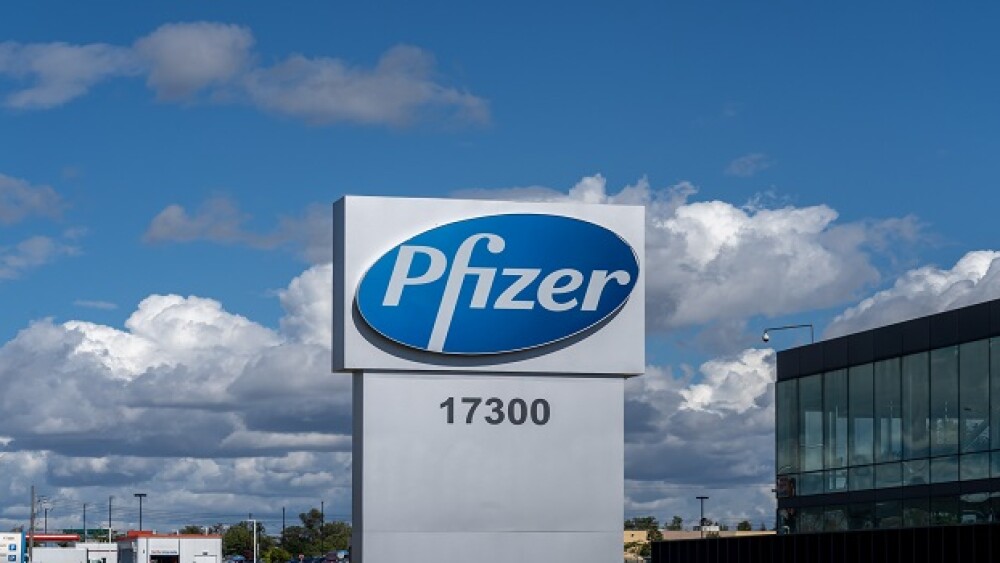Pfizer announced the FDA has granted its combinatorial therapeutic ervogastat/clesacostat Fast Track Designation that is intended for the treatment of NASH with liver fibrosis.
Courtesy of JHVEPhoto/GettyImages
On Thursday, Pfizer announced the U.S. Food and Drug Administration granted its combinatorial therapeutic ervogastat/clesacostat Fast Track Designation. The therapeutics are intended for the treatment of Non-Alcoholic Steatohepatitis (NASH) with liver fibrosis.
NASH is a type of non-alcoholic fatty liver disease marked by inflammation and damage of the liver in addition to a buildup of fat. The inflammation and damage to the liver can cause fibrosis and cirrhosis, leaving the organ scarred and permanently damaged while also increasing the risk for liver cancer. The cause of NASH is still up for debate, although researchers believe obesity, Type II Diabetes and genetics may play a role.
Treatment for NASH is desperately needed, as the FDA has approved no treatments for the condition, which affects an estimated 17 million people in the U.S. Pfizer is now entering the race, armed with ervogastat and clesacostat.
In nonclinical studies and a Phase IIa clinical study of the combination therapy, the treatment was effective in reducing liver fat while demonstrating a favorable safety and tolerability profile. Now, the treatment is being studied in an ongoing Phase II clinical trial evaluating the impact of the treatment on the resolution of NASH or improvement in liver fibrosis. The study is anticipated to be completed in 2024 and will inform a future Phase III clinical trial, including an arm that will investigate ervogastat as a monotherapy.
“Receiving Fast Track designation from the FDA reinforces Pfizer’s belief in ervogastat/clesacostat as a potential treatment for NASH, a serious, progressive liver disease with no currently approved therapies,” said Pfizer senior vice president and chief development officer of interal medicine James Rusnak, M.D., Ph.D., in a press release. “We are proud to be advancing this investigational combination as part of our goal to develop innovative medicines to address some of the world’s most widespread health challenges that affect millions of people—including diseases like NASH.”
The treatment targets two key enzymes that regulate lipid or fat metabolism called diacylglycerol O-acyltransferase 2 (DGAT2) and acetyl-CoA carboxylase (ACC). Prior research has shown that inhibiting DGAT2 and ACC can lower liver fat in patients with non-alcoholic fatty liver disease, and Pfizer believes the combination therapy will improve inflammation and fibrosis.
A recent report by Vision Research Reports states that the NASH clinical trials market size is predicted to hit $4.1 billion by 2030, likely due to rising healthcare expenditure, cases of obesity and the prevalence of NASH in the population. Clinical trials for NASH have also likely grown due to newer and better imaging modalities, which can be used in early-phase NASH trials to assess liver fat content and fibrosis stage.
There are currently 22 listed studies recruiting for patients with NASH. Earlier this month, Lipocine announced positive results from its Open-Label Extension study of LPCN 1144, which is an orally delivered prodrug of testosterone. Results showed that the treatment was well-tolerated, and liver injury markers reduced significantly and were maintained with extended treatment.





